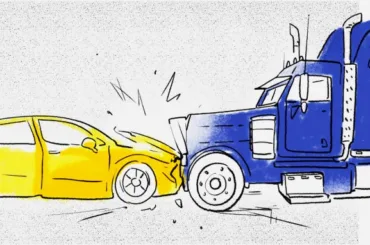Introduction
California’s Lemon Law is designed to protect consumers who purchase or lease new vehicles with substantial defects that manufacturers are unable to repair within a reasonable number of attempts. Navigating the complexities of Lemon Law and pursuing a settlement can be challenging. This guide provides a step-by-step approach to understanding and effectively handling Lemon Law claims in California.

Understanding California’s Lemon Law
What Constitutes a Lemon in California?
California’s Lemon Law is designed to protect consumers who encounter significant and persistent problems with new vehicles. To qualify as a ‘lemon’ under this law, a vehicle must have substantial defects directly impacting its use, value, or safety. Here are the key factors considered in determining if a vehicle is a lemon in California:
- Nature of the Defect: The defect must be substantial. This means it should be a significant issue that impairs the vehicle’s use, value, or safety. Minor or cosmetic issues typically don’t qualify. The defect could range from persistent engine problems to serious safety concerns.
- Repair Attempts: The law requires that the manufacturer or its authorized dealer has had a reasonable number of attempts to fix the problem. What constitutes a ‘reasonable number’ can vary but usually includes at least two or three attempts for serious safety defects.
- Vehicle Unavailability Due to Repairs: The vehicle must have been out of service for a considerable number of days due to repairs. The California Lemon Law presumes that if the vehicle has been in the shop for more than 30 days (cumulative, not necessarily consecutive) for warranty repairs since delivery, it may qualify as a lemon.
It’s important for vehicle owners to keep detailed records of all repair attempts, including dates, the nature of the problems, and the duration the vehicle was in the shop. This documentation is crucial when pursuing a lemon law claim. Consumers facing such issues with their vehicles are often entitled to a replacement, refund, or monetary compensation, but the specifics depend on the severity of the defects and the inconvenience caused to the consumer.
Coverage and Eligibility under California’s Lemon Law
California’s Lemon Law provides a safeguard for consumers who purchase or lease both new and used vehicles within the state. The law’s coverage and eligibility criteria are designed to ensure that consumers receive protection against defects that the manufacturer’s warranty should cover. Here are the key aspects of coverage and eligibility under this law:
- Types of Vehicles Covered:
- Cars, Trucks, and SUVs: The law applies to a wide range of personal vehicles, including cars, trucks, and SUVs. This broad coverage ensures that most consumer vehicles are eligible for protection under the law.
- New and Used Vehicles: Both new and used vehicles are covered, provided the used vehicles are still under their original manufacturer’s warranty. This inclusion of used vehicles is significant as it extends protection to consumers who may not be the original owners.
- Components Covered Under the Warranty:
- Drivetrain: This includes essential components like the engine, transmission, and other parts of the vehicle’s drivetrain. Issues with these parts can significantly impair the vehicle’s performance and safety.
- Chassis: The chassis, being the vehicle’s main framework, is also covered. Problems with the chassis can affect the structural integrity and safety of the vehicle.
- Other Warranty-Covered Components: The law also extends to other components that are covered under the original manufacturer’s warranty. This can include various electrical systems, suspension, brakes, and more, depending on the specifics of the warranty.
- Eligibility Requirements:
- Vehicles Sold or Leased in California: The vehicle must have been purchased or leased in California. This geographical requirement is crucial for the state law to apply.
- Under Manufacturer’s Warranty: The vehicle must still be under its original manufacturer’s warranty. This condition implies that the issues or defects occurred while the vehicle was supposed to be covered by the warranty, emphasizing the manufacturer’s responsibility to address these defects.
The Process of Filing a Lemon Law Claim
Successfully navigating a Lemon Law claim in California involves a structured approach, with a strong emphasis on thorough documentation and, often, legal consultation. Here’s a detailed breakdown of the key steps in this process:
- Documenting Your Case
- Gather Repair Orders and Receipts: Keep a meticulous record of all repair attempts for the vehicle’s defects. This includes all repair orders, receipts, and invoices provided by the dealership or authorized service center. These documents are crucial as they serve as evidence of the attempts made to fix the vehicle and the time it spent in the shop.
- Maintain Detailed Notes: In addition to the official repair documents, it’s important to maintain detailed notes of all your interactions related to the vehicle’s defects. This should include dates of conversations, names of dealership or manufacturer representatives you spoke with, and a summary of what was discussed or promised. These notes can provide additional context and support for your claim.
- Consulting with a Lemon Law Attorney
- Evaluate Your Case: An attorney specializing in Lemon Law can offer a preliminary evaluation of your case, helping you understand its strengths and weaknesses. They can assess whether your situation meets the legal criteria under California’s Lemon Law and advise on the best course of action.
- Legal Representation and Advice: A Lemon Law attorney can provide tailored legal advice specific to your situation. They understand the nuances of the law and can guide you through the legal process, ensuring that your rights as a consumer are protected.
- Negotiating with the Manufacturer: If your case qualifies, your attorney can engage in negotiations with the manufacturer on your behalf. Their expertise in Lemon Law cases equips them to effectively argue for a fair settlement, which may include a vehicle replacement, a buyback, or monetary compensation.
Navigating Settlement Negotiations in Lemon Law Claims
Settlement negotiations are a critical phase in Lemon Law claims, where understanding your options and adopting effective strategies can significantly influence the outcome. Here’s a comprehensive look at navigating these negotiations:
- Understanding Settlement Options
- Vehicle Replacement: One common settlement option is vehicle replacement. This typically involves the manufacturer providing a comparable new model as a replacement for the defective vehicle. The replacement should be equivalent in terms of features and value.
- Monetary Refund: Another option is a refund, which usually covers the down payment, monthly payments made, and any other related expenses incurred due to the defective vehicle. The specifics of the refund should account for the usage of the vehicle before the defect was discovered.
- Negotiating with the Manufacturer
- Presenting Your Case Clearly: When negotiating, it’s crucial to present your case and the supporting evidence methodically and clearly. This includes detailing the defect, the repair attempts, and how the defect affects the vehicle’s use, value, or safety.
- Valuing Your Claim: Understanding the value of your claim and being prepared for potential counteroffers is essential. This involves being aware of the monetary worth of the vehicle and any additional expenses incurred because of the defect.
- The Role of Arbitration in Lemon Law Claims
- Understanding Arbitration: Some manufacturers offer arbitration as a means to resolve Lemon Law disputes. This process involves an independent third party reviewing the case and making a decision. It’s often faster than going to court, but the decision can be binding.
- Rights and Options: It’s important to understand your rights in the arbitration process and whether it’s the best choice for your situation. While arbitration can be less adversarial, it’s vital to be aware of its implications and whether it aligns with your desired outcome.
- Recent Legal Developments and Their Impact
- Keeping Informed: Staying updated on recent legal developments and court rulings related to Lemon Law is essential. These developments can influence the interpretation of the law and affect settlement negotiations.
- Adapting Strategies: As legal precedents and interpretations evolve, it may be necessary to adjust your strategies when pursuing a Lemon Law claim. This could involve revisiting your settlement expectations or the approach in arbitration or court proceedings.

Conclusion
Navigating California’s Lemon Law and achieving a successful settlement requires a thorough understanding of the law, meticulous documentation, and strategic negotiation. Whether you opt for legal representation or choose to handle the claim yourself, being well-informed and prepared is key to a favorable outcome. This guide serves as a starting point for consumers embarking on this journey, empowering them with knowledge and confidence.




